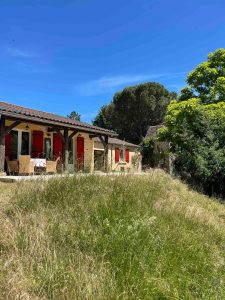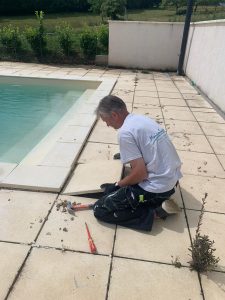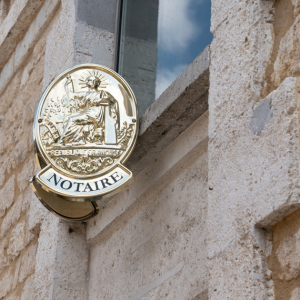Cost of buyer in France
When buying a house in France, there are several costs you need to take into account, especially the so-called “Notary fees” (frais de notaire). These costs include both the transfer tax that goes to the tax authorities and the fee for the notary to prepare the authentic deed of sale.
Let’s take an example with a sales price of 100,000 euros:
According to the rates set by the government, the total notary fee is 8.7%, which amounts to 8,700 euros. The transfer tax is a fixed percentage of the sales price, which was increased to 5.8% in 2015. This means that 5,800 euros will be transferred to the tax authorities.
This leaves 2,900 euros for the notarization. However, the notary must remit 483 euros in VAT to the tax authorities, leaving 2,417 euros as the notary’s fee.
It is important to note that the lower the sales price is, the higher the percentage of notary fees will be, and conversely, with higher sales prices, the percentage of notary fees will be lower.
From May 1, 2016, the situation will become more favorable for buyers, as notary fees will be partially released for sales starting from 150,000 euros. Notaries are then allowed to discount up to 10% on their portion above 150,000 euros. For a sale of 200,000 euros, this discount is 10%, which amounts to 30 euros. However, this does not really offer a benefit to the buyer. It is important to note that notaries are generally opposed to this change.
In addition, for “small sales,” such as the sale of a small piece of land worth 500 euros, notaries can charge up to 10% of the sale price for preparing the deed, with a minimum of 90 euros. This was previously significantly higher than 1,000 euros. Both buyers and notaries agree that 90 euros for preparing a legally solid deed (with 25 to 30 hours of work) cannot break even.
Costs to the seller are generally minimal and include only the mandatory reports and diagnostic tests, which can cost about 500 euros for a house worth about 100,000 euros. If there is no sewerage system and the house has an individual wastewater treatment system, such as a puits perdu, fosse septique or fosse toutes eaux, the cost of inspecting it is also the seller’s responsibility, the price of which varies by municipality, from 0 to 250 euros. It is important to note that these inspections are purely informational for the buyer, and the seller is not obligated to make any repairs based on them.
When selling a second home, the IRS would also like to collect any sale profits, known as the plus-value tax. This rate starts at 34.5% and can vary based on the length of ownership and any renovation costs. The broker can give you detailed information about this.
After purchasing a French property, you will be assessed various taxes each year:
1. Taxe Foncière (owner’s tax), which may or may not include the taxe d’enlèvement d’ordures ménagères (garbage tax).
2. Taxe d’habitation (occupancy tax).
3. Contribution audiovisuelle (viewing fee) if you can watch TV, even if it is not French TV.
The amount of these taxes varies by municipality and is based on several factors, such as the amenities in the municipality and the condition of your home. It is important to pay these taxes on time to avoid penalties.



